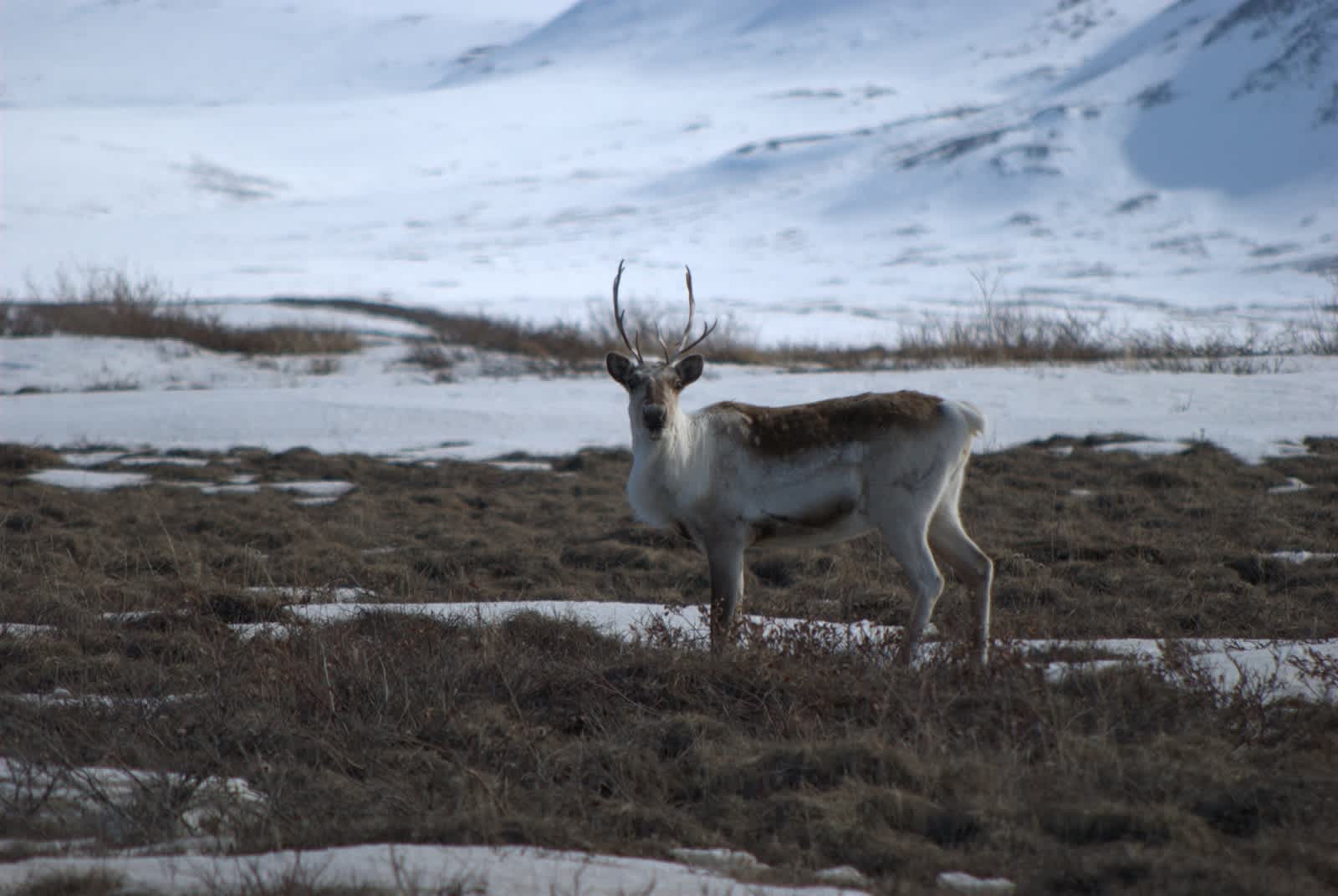Rising Likelihood of Forest Fire Endangers Caribou Range
OutdoorHub 08.12.14

New research by the US Geological Survey (USGS) and the University of Alaska, Fairbanks finds that caribou ranges in North America may be on the cusp of a drastic change. According to the study, which was recently published in the journal PLoS ONE, the increasing chance of wildfires in rural Alaska and Canada’s Yukon may soon force caribou to move their wintering grounds.
“We project that the Porcupine caribou herd will lose 21% of winter habitat to fire by the end of this century, with the majority of this loss driven by increased flammability in spruce forests in the Yukon,” Dave Gustine, USGS biologist and lead author of the study, said in a press release.
The Porcupine caribou herd, estimated at around 170,000 individuals, is assumed to be one of the largest in the world. Their current range runs through their namesake, the Porcupine River, but the herd is capable of migrating 1,500 miles between their wintering grounds and calving grounds near the Beaufort Sea. It is the longest migration of any land mammal on earth. Due to rising temperatures however, the boreal forests that the caribou depend on for winter cover are now much more prone to devastating wildfires.
“Fires were less numerous and smaller in tundra habitats compared to spruce habitats and given the more likely climate trajectory, we projected that the Porcupine caribou herd, which winters primarily in the boreal forest, could be expected to experience a greater reduction in lichen-producing winter habitats than the Central Arctic herd that wintered primarily in the arctic tundra,” said study co-author Todd Brinkman.
This could be very bad news to the communities that depend on subsistence hunting. The USGS predicts that as fires drive the caribou out of their traditional range, hunters will have to follow the herd further and further north to make their harvests. Researchers will continue to study the effects of climate change in the area as part of the USGS Changing Arctic Ecosystems Initiative. By better understanding how rising temperatures will effect the caribou herd, scientists hope to draft better wildlife and fire management plans in the future.

